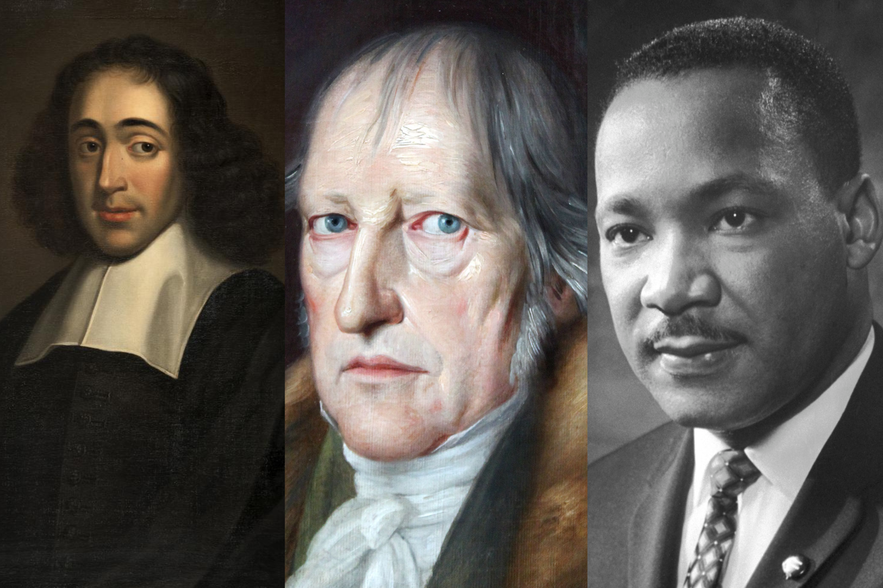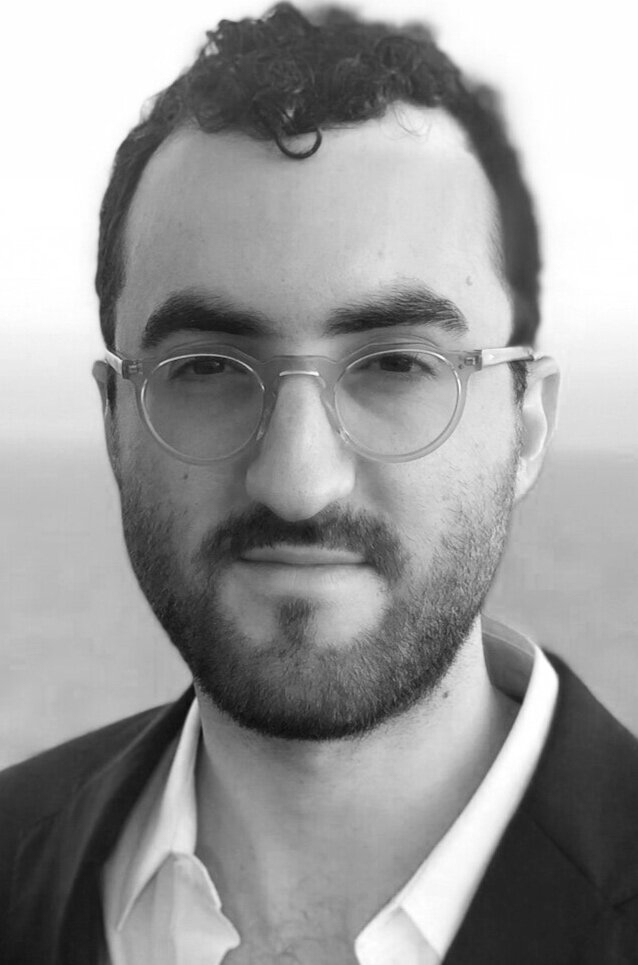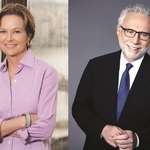Spinoza, Hegel, and Martin Luther King Jr.
On Political Change

M: Jakob Schlesinger, Bildnis des Philosophen Georg Wilhelm Friedrich Hegel, Berlin 1831, courtesy of the Alte Nationalgalerie, Staatliche Museen zu Berlin.
R: Martin Luther King Jr., courtesy of the Nobel Foundation.
- Date/Time
- Venue
- Center for Jewish History (map)
15 W. 16th St.
New York, NY 10011 - Format
- In person & online
- Admissions
- LBI/CJH/Partner Members, Students, Seniors: $5
General: $10
In this lecture inspired by realist insights of the scholar and philosopher David Baumgardt, Jason Maurice Yonover explores – and offers a new historical narrative of – the idea that political progress only comes through struggle. Yonover argues that Georg Wilhelm Friedrich Hegel’s predecessors, Baruch Spinoza and even Salomon Maimon, help to shed light on the realist view Hegel takes here. For Hegel then, someone who institutes a new and better social order does so rightfully, despite even violence. Yonover also argues, with unpublished writings by Martin Luther King Jr. on Hegel in hand, that both Hegel and King agree friction is essential to progress, but disagree on what such friction should look like, as for King nonviolence is an especially suitable engine of social improvement. In short: on King’s view, one must indeed crack eggs in order to make an omelet, and yet some techniques for cracking should be disvalued.
If you would like to attend this program virtually, please select the "Virtual Admission" option when reserving tickets on Eventbrite.
About the Speaker

Jason Maurice Yonover is a historian of political thought, and of philosophy more broadly, whose work bridges several contexts – in this case the Jewish, German, and Black radical traditions. He is currently the Desai Family Postdoctoral Fellow in the Department of Philosophy at Princeton University, and has presented his research at institutions across the US and Europe. He is also the most recent winner of the American Philosophical Association’s triennial Baumgart Memorial Fellowship, which is the occasion for this event.
